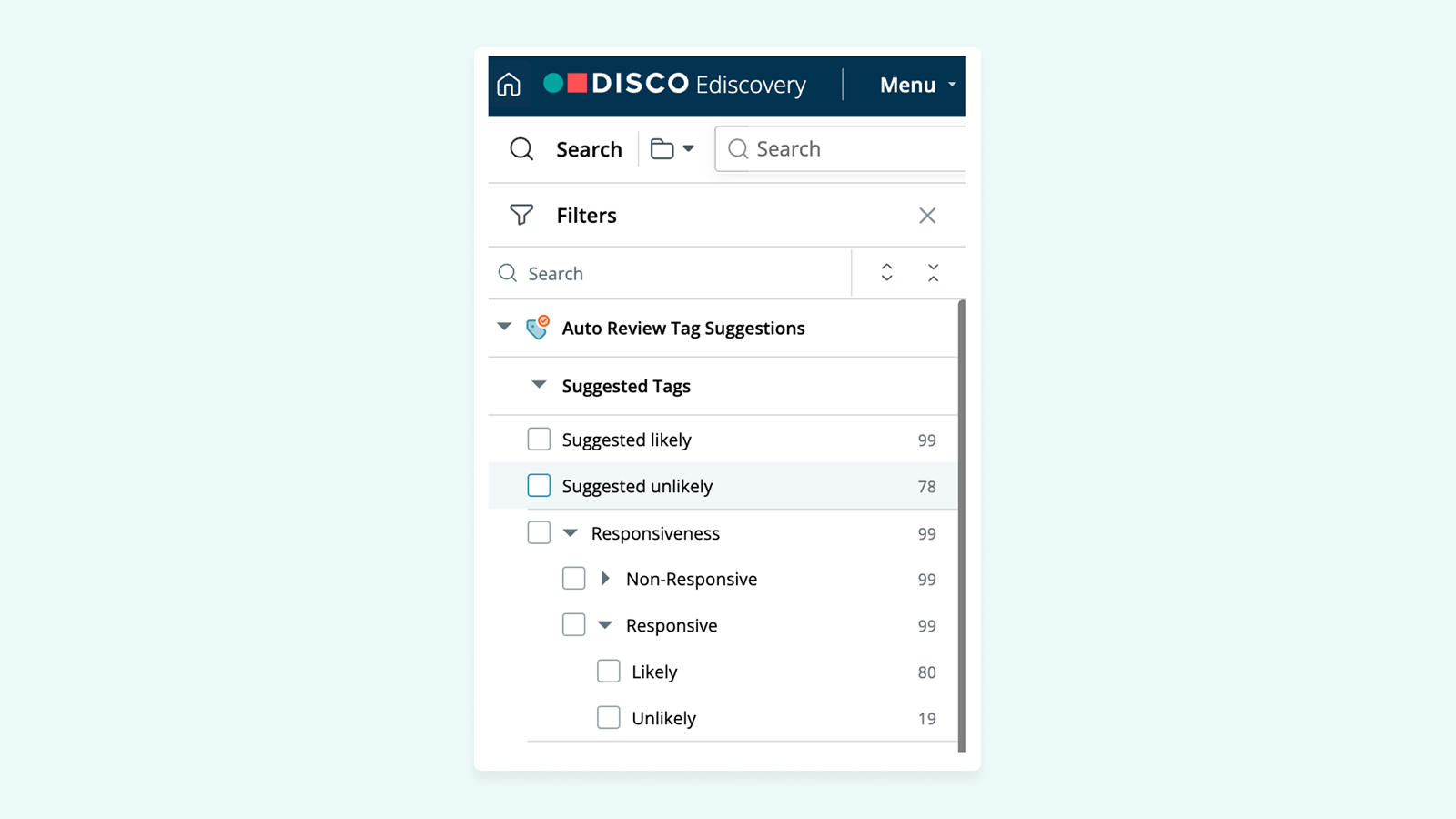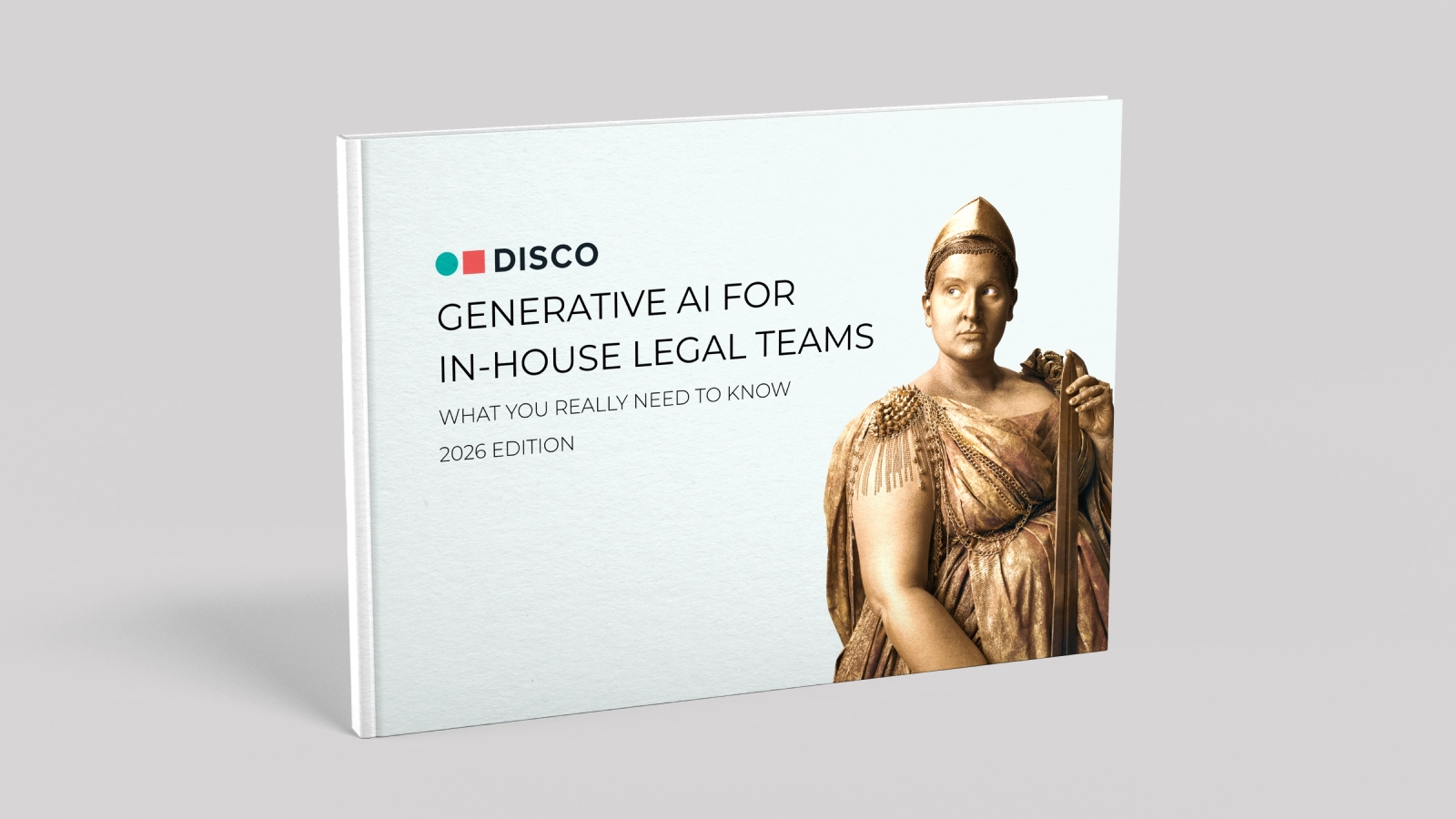⚡️ 1-Minute DISCO Download
As we step into 2025, the legal profession stands at a pivotal crossroads in its adoption of AI. Lawyers, judges, paralegals, and other legal professionals appreciate the efficiency of generative AI (GenAI) that frees up humans to do more substantive legal work. At the same time, the past several years have given us cause for caution, with high-profile examples of AI making up cases – and lawyers unquestioningly citing them in court filings – shining a spotlight on the weaknesses of current iterations of publicly-available GenAI. In the year ahead, legal professionals must balance their embrace of GenAI's transformative potential with a sharpened focus on its limitations, ethical implications, and best practices for responsible use.
When GenAI became mainstream through the widespread use of ChatGPT and other tools, the initial reaction of lawyers may have been “the robots are coming,” – but it quickly changed to “the robots are hallucinating.”
As a massive sci-fi movies fan, I couldn’t help but have that influence the title of this blog.
Below, I’ll explore the transformative potential of AI in the dispute resolution process, diving into the intriguing question: How far could AI judgment go, and how far might we want it to?
I’ll examine the distinct qualities of AI and human judgment, consider the implications and challenges of embracing AI in the judicial process, and explore a few real-world examples of international courts’ foray into the use of AI. For now, even sci-fi lovers like me don’t anticipate robot judges will be donning black robes in a courtroom near you – but AI dispute resolution tools are likely to streamline legal systems, and could make legal aid more universally accessible.
Related article: How Artificial Intelligence Changes Ediscovery 💡
AI vs. human intelligence: Key distinctions to understand
AI possesses notable advantages, such as processing vast amounts of information at a higher pace than humans, delivering high levels of accuracy in repetitive tasks, translating languages with impressive speed and precision, and identifying patterns in data that might go unnoticed by humans. Yet, it is crucial to acknowledge its distinctiveness from human judgment.
Some key distinctions between AI tools and the human brain include the following:
- GenAI models learn from mass amounts of human-generated data: This means that the vast majority of the training data and text that is fed into an LLM is of people speaking “normally.” Therefore, these tools give the impression of having human-like comprehension, but they do not actually “understand” your question.
- GenAI models excel at yes-or-no questions: Because of the way GenAI tools are trained, they are experts at predicting what should come next in a sentence – and you can use this to your advantage when asking questions.
- GenAI models require specificity (and struggle with ambiguity): GenAI tools do not have the same type of context clues a human would in a conversation, so if you use a word or phrase in a way that differs from its typical meaning, the LLM may not understand, or may provide an inaccurate response.
- GenAI models behave like a genie in a bottle (which is to say, literally): Like a genie that grants wishes exactly as they are spoken, LLMs interpret your queries and commands literally. They don’t read between the lines or infer your true intent unless it’s clearly stated.
- GenAI models read and respond sequentially: Whereas humans can write out of order, such as crafting the conclusion of an essay first and then going back later to write the introduction, LLMs do not possess this ability. They generate text in a linear fashion.
These differences highlight the strengths and limitations of AI when applied to complex tasks. AI can be taught to process evidence in a case – but would we want AI to make legally binding decisions?

How AI is already used in the practice of law
Of course, AI is not new to legal systems. We’ve already seen lawyers use AI (in some cases, for decades), to:
- Do legal research: AI can serve as a great tool for legal research, enabling lawyers to search through vast databases of case law, statutes, and legal opinions with remarkable speed and accuracy. By leveraging natural language processing, GenAI tools allow attorneys to search using plain English queries rather than complex legal syntax, saving countless hours of manual research.
- Identify and tag documents in reviews: Over 80% of legal practitioners indicated that document review is the task that would see the most immediate change from GenAI. From Technology-Assisted Review (TAR) to newer GenAI tools, these models identify relevant documents, classify them based on relevance, and tag sensitive or privileged materials – drastically reducing the cost and time associated with large-scale ediscovery.
- Summarize long documents: AI tools are increasingly capable of condensing lengthy legal documents, such as contracts, briefs, or court opinions, into concise summaries. These summaries highlight key points, clauses, or risks, allowing lawyers to quickly grasp the most important information.
- Analyze contracts: AI-powered contract analysis tools are revolutionizing the way lawyers and legal teams review, interpret, and manage contracts. These tools can help parse and filter contract repository data, automate contract drafting and approval management, and improve reporting by quickly generating summaries and yielding valuable insights.
- Draft documents and briefs: Generative AI doesn't just assist with discovering the details – it also serves as a great starting point for drafting legal documents. From providing robust outlines and structures to saving time and reducing human error, GenAI tools offer a way to quickly generate routine documents and automate repetitive tasks.
For more information about how legal professionals are using and thinking about AI – including their hopes, concerns, and timelines for adoption – read DISCO’s 2024 poll results here.
The risks and challenges of using AI for dispute resolution
Consider your own appetite for submitting a dispute to an AI over a human judge...p Perhaps you've used PaypPal's dispute resolution helper to get back a few dollars, but would you trust it with a few million? If not, why not? These considerations go to the heart of the AI debate as it concerns legal judgment.
Besides – or, perhaps, beneath – human reluctance to trust AI with critical decisions, here are two key areas of AI that will need to improve before we can truly begin to consider applying AI in dispute resolution.
Bias
One of the significant benefits of AI is its ability to make decisions based on clear rules and objective criteria. Sound familiar? It should – isn't the law supposed to be “reason, free of passion”?
But while AI relies on algorithms and a meticulous analysis of facts, it can have biases, which come from the data that the machine learning models are built from. If not screened properly, unconscious biases become built into the AI. This begs the question, is AI any better than human judgment?
At the moment, AI, like humans, has been shown to exhibit bias. However, AI built on unbiased data and set guidelines, with continual coaching, could learn to recognize bias and point it out to humans. As it continues to learn, AI could eventually combat bias on its own. Still, it’s important to strike a balance. While AI's capacity for consistent, evidence-based decision making is a potential benefit for legal judgment, the courtroom often demands a nuanced understanding of the complexities, emotional aspects, and societal implications of a case. The integration of AI into the legal profession must navigate this delicate equilibrium between the advantages of clear rule-based decision making and our need for understanding and interpretation.
AI hallucinations
Moreover, AI, still in its formative state, has limitations — “ghosts in the machine” that puzzle users. The known possibility of AI systems to generate false or misleading information, known as "hallucinations," poses a significant challenge. Courts have sanctioned lawyers for citing fake cases generated by AI. In addition, the art of persuasion and the presentation of arguments, central to present day litigation, would, at least on paper, be superfluous to AI’s decision-making process.
Related: Reality Check: How to Navigate AI Hallucinations 💡
With that in mind, would the general population be happy in the knowledge that their disputes were going to be determined solely by the strength of evidence — or do the persuasive skills of lawyers still play a pivotal role in our appreciation of justice? Is this appreciation weighted in favor of plaintiffs or defendants, or both? These are pertinent issues that will continue to evolve as AI develops.
Real-world examples: AI in dispute resolution
For the moment, we may be far from a world where GenAI takes the place of judges, though the possibility stirs imaginations and stokes concerns.
Estonia explores AI dispute resolution
For example, in 2019, when Estonia’s judiciary tasked an AI expert with researching AI dispute resolution, primarily to handle cases involving amounts under 7000 euros, some news outlets jumped on the idea of robot judges. The Estonian Ministry of Justice later issued a statement that it was not, in fact, implementing AI decision-making.
Colombian judge draws criticism for ChatGPT use
Closer to how many – lawyers and the general public alike – are actually using AI, a judge in Colombia drew criticism in 2023 for consulting ChatGPT on a legal question.
China modernizes legal practice with “smart courts”
Chinese “smart courts” also present glimpses into potential uses of AI. The term “smart courts” has been used broadly for China’s modernization efforts over the past several years. The term encompasses an array of tools like digitization of documents and online hearings that are relatively common in the U.S. as well. However, certain innovations have raised questions and possibilities. Even before the advent of the current GenAI, at least one province began using AI decision makers – overseen by human judges – in certain types of cases.
GenAI in mediation?
GenAI also offers possibility in alternative dispute resolution, as parties may be more open to non-traditional methods than they would in the courts. However, one telling anecdote illustrates the current ethos: With negotiations at a standstill, a mediator suggested that the parties could agree to be bound by ChatGPT’s valuation of the case. Facing the prospect of an AI mediator, the parties quickly resumed negotiations and reached an agreement on their own. AI may also move the needle on access to justice, such as through AI assistants, chatbots, and fillable forms for non-represented litigants.
While none of these scenarios indicate that AI judges are close to becoming commonplace, they do raise interesting considerations about how AI judgment might be applied. For instance, let's consider a relatively straightforward contract dispute between large corporations, with large amounts of discovery materials. In this scenario, speed and efficacy may be paramount. AI's ability to swiftly process vast amounts of data and identify relevant precedents could be valuable. It could, with contractual guardrails, significantly expedite resolution.
However, would the same be true for matters involving complex emotions, subjective judgment, or the weighing of more intangible factors such as equity and emotional response? For example, a personal injury case involving emotional distress, or a trademark dispute to determine whether consumers are likely to be confused, does not seem ripe for AI adjudication. Striking the right balance between AI and human judgment in the legal profession remains a debatable point, but one that will challenge our conceptions of legal judgment and the advice lawyers dispense to clients relating to the merits of various forms of dispute resolution.
Related: Learn more about the different types of AI 💡
Conclusion
The transformative potential of AI in law is undeniable – but whether (and how) to integrate AI into the decision-making process requires more complex consideration. As machine learning develops, there may be cases where human judgment, with its nuanced understanding, empathy, and contextual analysis, remains irreplaceable, and matters where its appreciation and impersonal interpretation of vast quantities of data is preferable. Much will depend on the lawyer’s ability to understand and advise clients on how to best resolve disputes.
Fortunately for the legal profession – and for clients – lawyers remain a crucial piece of the tech puzzle. For all of its challenges, AI offers the opportunity for courts and lawyers to devote less time to clerical tasks and more time to thoughtful legal judgment. Lawyers, courts, and the entire legal profession must continue to proactively consider how to best serve clients and the interests of justice with the AI tools available now and in the future.
To learn more about how secure AI can enable you to deliver better outcomes for your clients, reach out to DISCO and we can answer your questions and continue the conversation.


.webp)



%20(1).jpeg)








